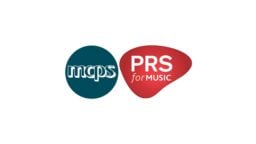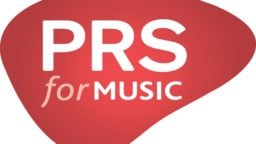
YouTube beware.
When PRS took legal action against SoundCloud in August, the industry held its collective breath.
This was the UK CMO pressing the red button after five years of unsuccessful negotiations over a European publishing license.
Its message was flagrant: if free digital services simply choose to ignore our calls for them to get licensed – and, for that matter, pay creators for use of their music – we’re not scared of the last resort.
A fear amongst DSPs of being hauled in front of a court to explain their actions is an important weapon in a wider mission for PRS: clipping the wings of safe harbour legislation in Europe so that digital services deliberately infringing copyright can’t hide behind a ‘mere conduit’ or ‘hosting’ defence any longer.
With SoundCloud, it certainly did the trick.
Despite the fiery headlines, PRS boss Robert Ashcroft (pictured) admits that the collection society wanted to avoid a drawn-out legal scrap all along, and it achieved just that.
Yesterday, MBW broke the news that not only had SoundCloud and PRS agreed a settlement, but that they’d also shaken hands on a multi-territory EU license for music use in future.
That meant the good news was two-fold:
- Songwriters and publishers are going to get paid for use of their music on SoundCloud from now on in Europe – especially via the service’s upcoming subscription platform;
- A lump sum settlement has been paid to PRS for historical use of music, which will be divvied up amongst rightsholders in 2016.
Question is: what happens now?
Will PRS end up suing that other slippery proponent of safe harbour defences, YouTube?
And what will happen to the money received as part of the settlement with SoundCloud, which will total many millions of dollars?
MBW grabbed 20 minutes with Ashcroft to ask him these and other key questions in the wake of a huge end-of-year decision for the music business…
What was your strategy when you decided to launch legal action against SoundCloud in August? Did you get the outcome you were hoping for?
Our strategy was pretty well picked up by your good self, and became reasonably public: in parallel with the potential legal action, we were engaging in ‘without prejudice’ conversations.
“Our aim was always to bring soundcloud to the table and license the service.”
Our aim was always to bring SoundCloud to the table and license the service. We’d been talking to them for five years. We were quite confident; we wanted to see a licensed service.
Do you get a genuine sense from SoundCloud’s side that they have a business ambition to succeed with a subscription platform – and that they’ll remain solvent long enough to do so?
It’s clear from our discussions with them that is their intent. I know they have good financial backing. We’re very hopeful that this will be a major service.
“We believe soundcloud is sincere in the evolution of their business [into subscription].”
It has its own particular personality and there’s room in the market for lots of different takes on music services. We do believe that they’re sincere in the evolution of their business.
Vevo’s looking at a subscription service, Apple Music is already one; Spotify‘s conceding ground on the ‘everything free’ rule; YouTube’s even launched Red – a paid-for tier. Now SoundCloud is starting to behave itself. Is there something in the air?
We very much hope so. We’ve been very public about our feeling that the playing field has not been level between the different kinds of services.
We’ve called on the European Commission to examine the boundaries of who can benefit from the hosting defence under safe harbour legislation and who cannot. We’ve called for a clear distinction between those services that are purely passive, like DropBox, and those that are active in that they provide search, curation and various other means of accessing music.
“It was time to accelerate our discussions with soundcloud and part of that was legal action. We’re in similar discussions with youtube…”
The EC has welcomed that [input]. They’ve included it as part of their copyright review. That movement and that understanding coincided with our feeling that it was about time to accelerate our discussions with SoundCloud and part of that was launching legal action.
We’re in similar discussions with YouTube. My aim is to create a climate were copyright is valued on the internet, and where all of these services can compete with each other on a level playing field.
Is there a possibility that in your quest to clip the wings of safe harbour in Europe, you might launch legal action against YouTube?
At present we don’t have any intention to do that. But our conversations go on with them in the background all the time.
We have very high level and fruitful contact with them. So let’s see where that goes first.
So you’re not saying it definitely won’t happen?
[Laughs] You’re a journalist, I’m running a company… I’m not going to exclude that [possibility]. We haven’t made that decision at the present time.
How optimistic are you feeling about your chances of quashing safe harbour for certain parties in Europe?
We’re feeling quite optimistic. Our conversations with both the European Commission and members of the European Parliament clearly indicate that both bodies recognise that something needs to be rebalanced here.
“My sense is that europe recognises the value of the creative industries and that something must be done [about safe haRbour].”
There’s a long way to go, and these things are quite delicate and complicated. But my sense is that Europe recognises the value of the creative industries and there is a broad feeling that something must be done. The devil, of course, is in the detail.
It’s a time of celebration amongst PRS members. But sooner rather than later, they’ll start asking, ‘What’s in it for me?’ If we just look at the settlement, there must be some kind of historical compensation. Are you happy with the amount you’ve got over the line as a one-off payment?
We are happy with the deal. Though we obviously now have to sit down and work out what that means.
How will you go about distributing that money to the rightful parties? SoundCloud’s metadata is famously patchy – much worse than, say, Spotify’s. Will that force you to pay out the money on a market share basis?
Well that’s one of the things we’ve agreed to work on going forward. [Data] is one of the most important things we wanted to secure.
This is one of those times when we’re blessed to be a membership society and all of the governance that goes with that – an elected board and distribution committee.
“In the new year, our members will turn their minds to the fairest way of dealing with this.”
They are fully aware of and sensitive to the unique nature of SoundCloud.
I imagine that in the new year they’ll be turning their minds to what is the fairest way of dealing with this.
You’re not going to give specifics, but what can you tell us about the licensing deal you’ve signed for future plays on SoundCloud?
You very wisely put it that way, and I’m going to have to very wisely tell you I can’t [give details] – the terms of the deal are confidential.
This is a joint announcement with Soundcloud. We’re concerned to respect their interests as much as our own in this. They now have a lot more discussions to undertake with the industry.
They will be engaging in those now with renewed fervour. I don’t want to say anything that might prejudice those conversations.
How do you feel about large rights-holders owning equity in SoundCloud? Are you interested? Did that come into your discussions at all?
As far as we’re concerned, we just have to look at our relationship with them and our members’ relationship with them.
We’ve been very clear over the years: we think that it is better not to end up confusing things by taking stakes in these online distribution businesses as a collection society.
“We think that it is better not to end up confusing things by taking stakes in these online distribution businesses.”
It compromises our ability to pay owner in period and it confuses the value chain.
We’ve always preferred not to do it, but you’ll have to talk to the others about their decisions.
When can PRS members look forward to being compensated for the historical usage of their music on SoundCloud?
I honestly don’t know – that’s going to have to be discussed by members of the board and the [PRS] distribution committee.
I wouldn’t want to pre-empt this; this is all very new. As an organisation we don’t sit unnecessarily on members’ money. It’s of greater value when it’s in their hands rather than ours.
In the wake of the SoundCloud settlement, do you have a message for other services who aren’t currently playing fair on safe harbour and licensing?
My message to everybody on that – and I’ve been very clear, direct and personal with YouTube on this one – is that I believe in the absence of full consent from rights-holders, we don’t have a level playing field.
“It’s damaging to creators, other companies that pay a licence, and to the economy as a whole.”
That’s damaging to creators, damaging to the other companies that do pay a full licence, and it’s damaging to the economy as a whole.Music Business Worldwide




